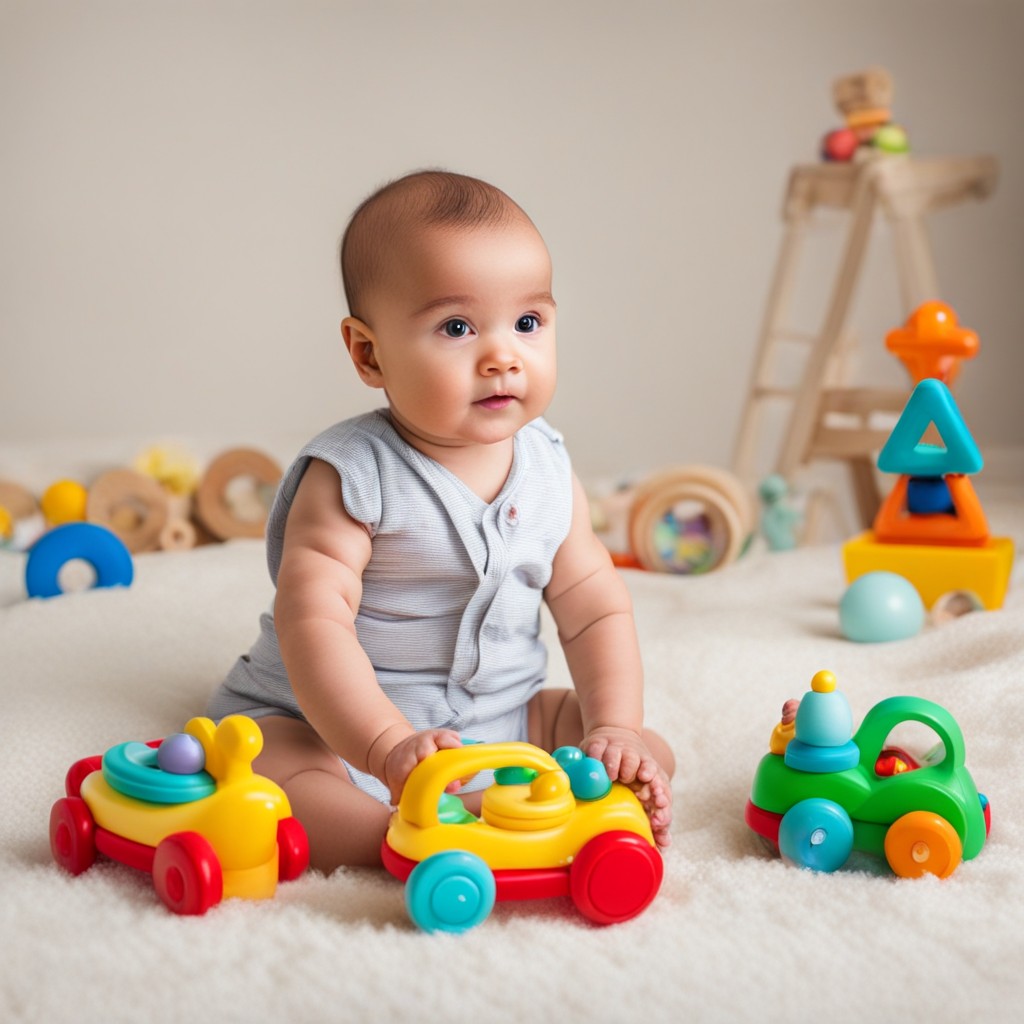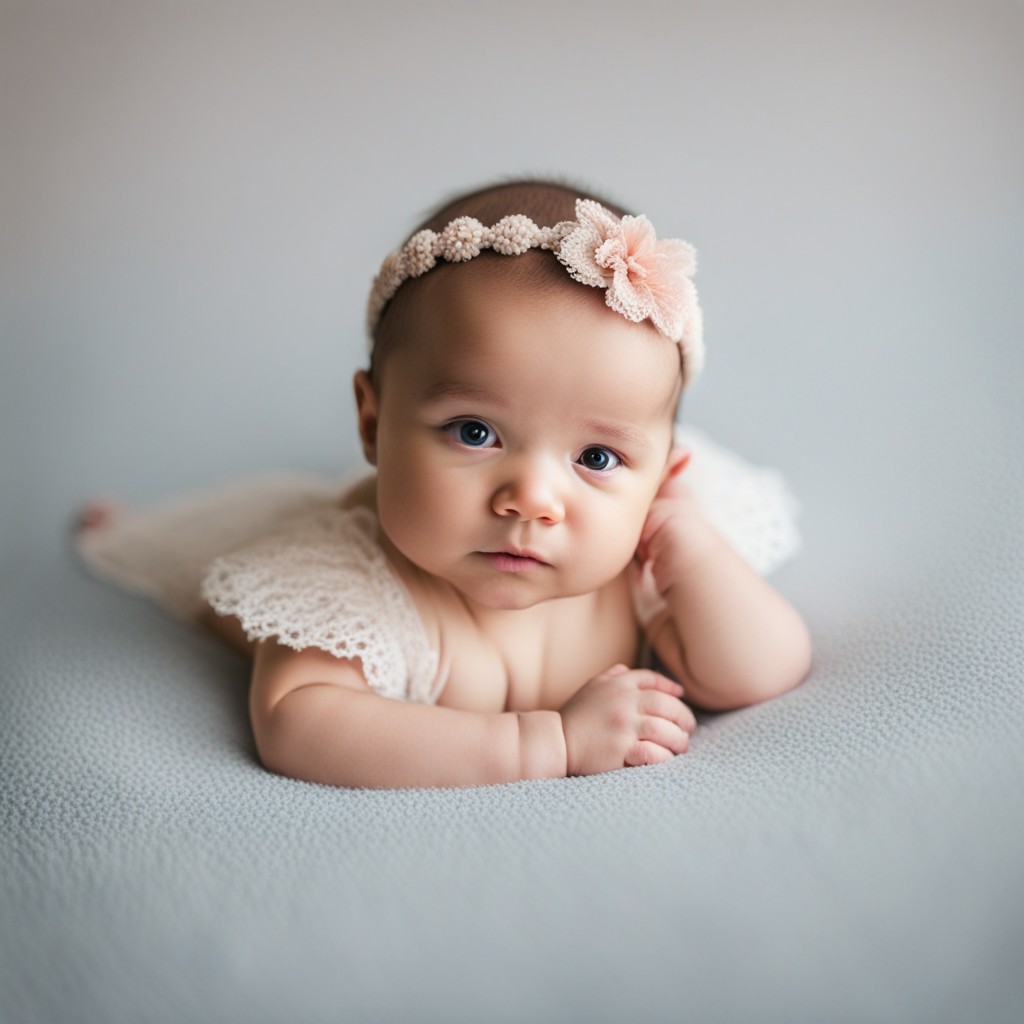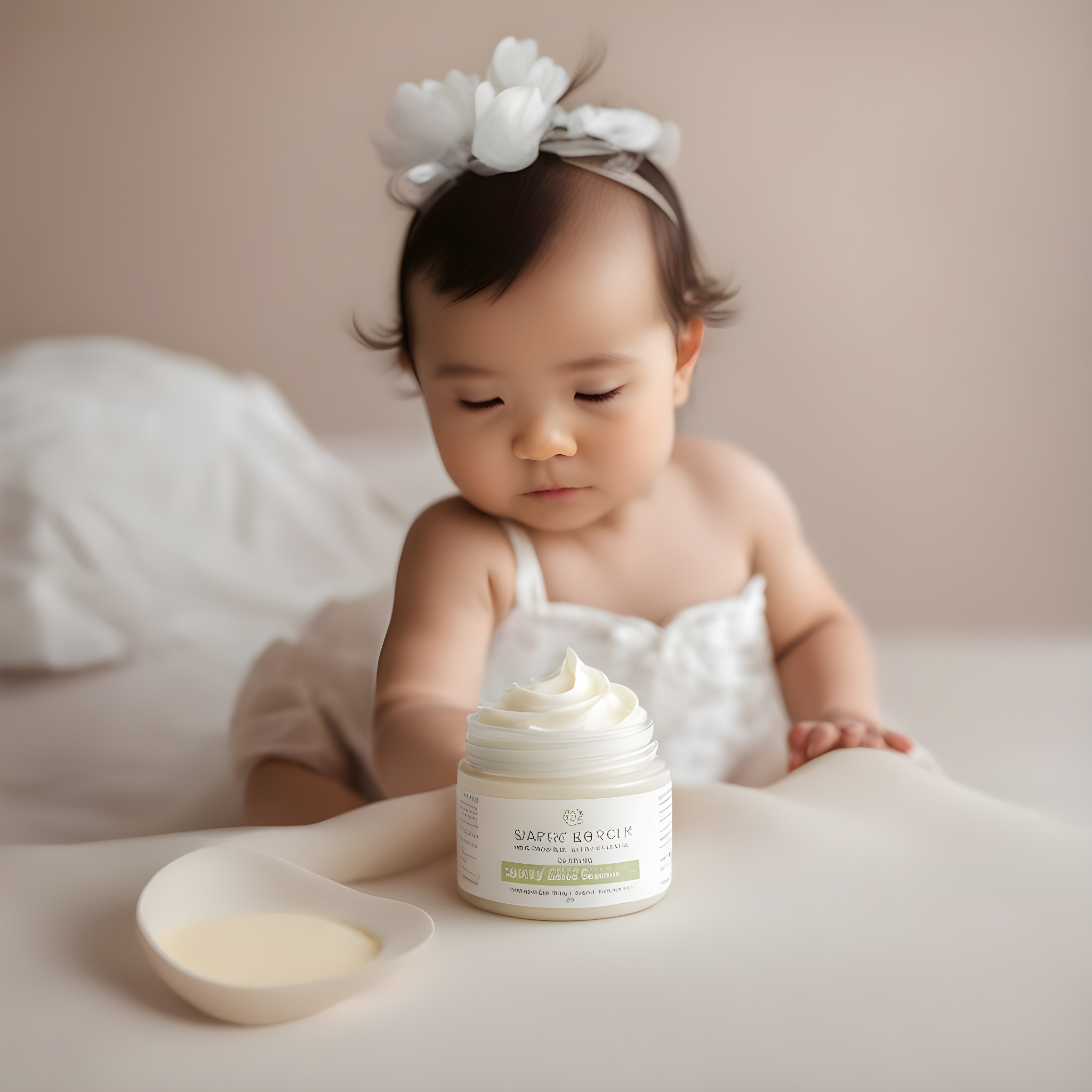3 Month Old Baby Development
Two big months have passed. You’re about to start enjoying delightful moments with your baby because they are now going to recognize you, smile, giggle, and discovering their hands and playing with them will be their greatest joy. If you’re ready, let’s begin reading about the development of a 3-month-old baby!
3-Month-Old Baby Development Chart
The answers to questions like “How much should a 3-month-old baby weigh?” or “How much should a 3-month-old baby’s height increase?” can be found in the table below:
| Girl (average) | Boy (average) | |
|---|---|---|
| 3-month baby weight | 5.5 kg | 6 kg |
| 3-month baby height | 59 cm | 61 cm |
| 3-month baby head circumference | 39.5 cm | 40.5 cm |
- Your 3-month-old baby continues to develop, much like the previous month.
- They gain approximately 750 grams in weight and grow by about 2 cm in height.
- During this time, your baby’s eyes might seem quite chubby, but don’t worry; this plumpness will gradually disappear as they start crawling and walking in the coming months.
3-Month-Old Baby’s Sensory Development
Vision at 3 Months
Your baby’s vision is rapidly developing. If you’re wondering, “How does a 3-month-old baby see?” you can say that they will start seeing the world much like you in a few months.
- At the third month, your baby may focus both of their eyes inward to look at an object nearby and turn them outward to see something in the distance.
- They can start seeing things at a distance and may recognize you even if there is some distance between you.
- They will slowly begin to distinguish colors, with a particular interest in primary colors.
- If you notice any issues like cross-eyes or wandering eyes in your baby’s vision during this month, it’s advisable to consult a doctor promptly.
Hearing at 3 Months
Your baby’s hearing abilities have improved significantly. They can now react with excitement to familiar sounds or remain calm when they hear familiar voices. When they hear an unfamiliar sound, they might suddenly turn towards the source of the sound, trying to locate it.
Taste and Smell at 3 Months
- Towards the end of this month, your baby will start to differentiate between different tastes.
- They may discern the difference between breast milk and formula and react to it.
- If you introduce a new type of baby food, they may recognize it as a foreign substance.
- Unpleasant smells might trigger reactions.
- All of these can influence your baby’s feeding preferences.
3-Month-Old Baby’s Cognitive Development
During this month, your baby will start to move consciously. They will raise their hands to examine them or reach for toys eagerly. All of these actions are driven by the development of motor skills, thinking, reasoning, and planning abilities.
During this time, your baby’s brain starts to form memories and experiences. Repeated actions help create memory pathways. For example, they may learn that when they cry, you will respond with attention, or when they smile, you will smile back at them.
3-Month-Old Baby’s Social Development
Your 3-month-old baby will exhibit more sounds and facial expressions. They might coo, cry, babble, stick out their tongue, smile, and use these ways to try to communicate with you. If you wonder, “What does a 3-month-old baby enjoy?” you can say they love it when their actions get a response.
By now, they know you and their father quite well, and they don’t have a fear of strangers yet. However, in a few months, they might not want to leave your side and may not be very friendly with strangers, so keep that in mind.
During this month, your baby may cry not only to express their needs or emotions but also to seek attention. If you’re wondering, “Why does a 3-month-old baby cry?” don’t forget that seeking attention can be one of the reasons!
What Can a 3-Month-Old Baby Do?
Your 3-month-old baby’s movements will progress faster than in previous months. They can now hold their head up better and even lift it to about 45 degrees. So, if you’re wondering, “Can a 3-month-old baby hold their head up?” the answer is yes.
Although it will be several months before they start walking, when you support them on their feet, they might make stepping movements. But don’t rush; this is just a reflex!
Your baby’s brain development seems to be making a leap this month. They will become more in tune with the real world and pay close attention to what’s happening around them. Especially when they hear your voice, they might directly look at you and even try to respond.
By the third month, they will be aware of their hands. They will start exploring them, especially when lying down. They will examine their own hands with almost all fingers spread out, realize they can make a sound by clapping them together, and even manage to clasp their hands together. Toward the end of this month, they will learn that their hands can touch and move objects like toys.
They will also realize that their hands are good for grabbing things and might try to shake objects, especially noisy toys. Once they learn this, it won’t be easy to take the toy away from them. The third month will continue with them putting everything they can into their mouths. You might wonder, “Why does a 3-month-old baby put their hand in their mouth?” The answer is simple: they are trying to explore everything with their mouths!
The most delightful development this month is that they will start recognizing their loved ones more clearly. They will behave differently with you and your partner, recognize you immediately, smile more, cry less, and not want to be alone. As you can see, the behaviors of a 3-month-old baby are changing gradually!
By the end of this month, your baby will be able to:
- Cry less and smile more because their relationship with the outside world is improving.
- Roll over on both their bed and play mat. But be careful not to leave small pieces on the play mat since they put everything in their mouths!
- Turn their head to see a slowly moving object and follow a close object up to 180 degrees.
- Their reaction to strangers will become apparent this month. When someone unfamiliar holds them, they will first examine them, and if they realize they don’t know the person, they might start crying.
3-Month-Old Baby Toys
Toys play a significant role in the development of your 3-month-old baby! During this time when your baby is keenly observing the surroundings, eager to have fun, and their senses are fully engaged, toys can be beneficial for both motor skill development and having enjoyable moments!
Toys that capture their interest in sounds and colors will be helpful. Here are some toy suggestions for a 3-month-old baby:
- Rattles are suitable toys for your 3-month-old baby. Their sound will encourage interaction. When your baby shakes a rattle, they hear a sound and realize they can create it themselves!
- Soft toys with different textures and colors can help your baby’s sensory development.
- Brightly colored toys and mobiles can catch their attention and stimulate their vision.
- Mirrors are exciting for your baby because they can see their reflection. It’s an excellent way to encourage self-awareness.
- Play gyms with hanging toys can be both fun and educational. Your baby can lie on their back and reach out for the toys, improving their motor skills.
- Board books with large, colorful pictures are perfect for introducing your baby to the world of books.
These toys will keep your baby entertained and help them develop their senses and motor skills. However, always supervise your baby during playtime to ensure their safety.
Feeding a 3-Month-Old Baby
Feeding your 3-month-old baby will remain a crucial part of their daily routine. If you’re breastfeeding, continue to do so on demand, and if you’re using formula, follow the instructions on the package.
At this stage, you might consider introducing a bottle if you haven’t already, as it can help your baby transition to bottle feeding if needed.
Remember that every baby is unique, and their feeding needs may vary. Some 3-month-old babies might still wake up for nighttime feeds, while others might sleep longer stretches. Follow your baby’s cues and consult with your pediatrician if you have any concerns about their feeding habits or growth.
3-Month-Old Baby Sleep
By the time your baby reaches 3 months of age, you might notice some changes in their sleep patterns. While every baby is different, here are some general sleep patterns for a 3-month-old:
- Your baby may start sleeping for longer stretches at night, typically around 5 to 6 hours at a time.
- They might still take short naps during the day, ranging from 30 minutes to 2 hours, with several naps throughout the day.
- A consistent bedtime routine can be helpful in establishing good sleep habits.
- Keep in mind that sleep regression can occur around this age, which might disrupt your baby’s sleep patterns temporarily.
Ensure that your baby’s sleep environment is safe and comfortable, and always follow safe sleep guidelines to reduce the risk of Sudden Infant Death Syndrome (SIDS).
3-Month-Old Baby Care Tips
As your baby continues to grow and develop, here are some care tips to keep in mind:
- Continue with regular pediatrician check-ups to monitor your baby’s growth and development.
- Practice tummy time daily to help strengthen your baby’s neck and upper body muscles.
- Keep your baby’s environment clean and free from small objects that could be a choking hazard.
- Maintain a consistent daily routine, including feeding, playtime, and naps, to provide stability for your baby.
- Enjoy bonding time with your baby through cuddling, talking, and singing. These interactions are essential for their social and emotional development.
Remember that every baby is unique, and they may reach developmental milestones at their own pace. If you have any concerns about your baby’s development or health, don’t hesitate to consult with your pediatrician.
Conclusion
The third month of your baby’s life is filled with exciting developments in their sensory, cognitive, and social abilities. Enjoy this special time with your little one as they grow and explore the world around them. Remember to provide love, care, and support to nurture their healthy development. Before you know it, they’ll be reaching more milestones and growing into a curious and active baby.

 2-Month-Old Baby: Milestones and Development
2-Month-Old Baby: Milestones and Development